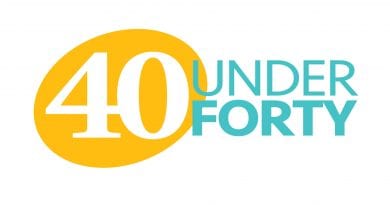MHA’s Yale Street GRIT Program Celebrates First-year Anniversary
Marking a Milestone
HOLYOKE — The Mental Health Association, aware that there was no residential recovery program in the state exclusively for those who identify LGBTQ+, opened its GRIT — Yale Street program in Holyoke in the spring of 2021, and both staff and residents say the program has lived up to its acronym that stands for “Growing, Re-imaging, Inspired, Transformed.”
“The feedback we get is that the residents like the staff, and feel that they are being supported in the program,” said Bonnie O’Donnell, program director. “They absolutely love having their own bedroom. This is very unusual for most residential programs. Most of them list the fact that it’s solely an LGBTQ+ residence that means the most to them. We have had residents who have cycled through different pronoun use, try out different names, as well as have the freedom to dress in any style or gender that they wish.”
She added, “Our residents are so brave, so strong and so inspiring.”
“To know that they are learning how to be their best selves and are willingly and openly sharing the most difficult things in their lives with us is truly the life-changing for us as a staff,” O’Donnell said.
The Yale Street program is one of two other GRIT programs that MHA has for different populations in recovery with substance use disorders and-or mental health diagnosis, and all made possible by contracts with the Massachusetts Department of Public Health. It is in a spacious, renovated Tudor-style home that sits on nearly an acre of land.
Feeling accepted, supported and safe no matter where they are on the spectrum of gender identity, biological sex, and sexual orientation is what makes the program welcoming for residents and a model for others, said O’Donnell.
“Being in recovery is hard, especially in the beginning,” she noted. “There are typically many barriers each person faces when they start their recovery process. Those who identify as LGBTQ+ have an additional barrier in their recovery process, especially if they are transgender, but even if they are not, and are simply non-binary or gay or lesbian.”
She said the fact that “most programs of recovery are diverse” means someone who is transgender can be “in the same program as someone who may be diametrically opposed to the transgender population.”
“To know that they are learning how to be their best selves and are willingly and openly sharing the most difficult things in their lives with us is truly the life-changing for us as a staff.”
“The transgender person spends a lot of energy just trying to fit in, not making waves perhaps, or just focusing on staying clean,” O’Donnell said. “But it’s distracting to always have to justify their existence, their choices, and their very being. So, at Yale Street we have effectively eliminated one huge barrier to recovery. This allows our people to focus on other things, which may include how their sexuality or gender identity has played into their substance use and/or mental health issues.”
Her words are echoed in interviews with the residents, one of whom referred to trauma and instability as “consistent in my life until I got into this program.”
“It is pretty new for me not to have to worry about my physical safety on a daily basis,” the transgender woman said. “I don’t have to worry about what I am going to eat or if it is going to get so cold that I will freeze to death in my sleep. This is all new territory for me.”
O’Donnell said the 16-bed program “has a wait list and it has had that wait list since the opening of our doors.”
“Right now, we’re at 13 but we have been as high as 26,” she said. “Clearly, there’s a need. We treat male, female, non-binary, and transgender individuals, or anyone else who falls on the LGBTQ+ spectrum.”
She said that when residents arrive, they are “assigned a peer mentor who helps them adjust to the program.”
“This helps people feel welcomed by their community,” O’Donnell said. “But more than that, we strongly emphasize a trauma-informed care approach to our programming. We run groups on relaxation, dialectical behavioral therapy, a type of cognitive behavioral therapy, gender and sexuality, yoga, art therapy. We try to be open to almost anything that will help support our residents in their recovery process.”
She said it is the resident who determines a “successful discharge.”
“They begin that process at admission—we start talking immediately about what their future might hold, what are their dreams, where they want to be,” O’Donnell said. “This constantly evolves as their recovery deepens so there are frequently changes. It’s a process and by the time people leave our goal is to have them connected to enough community resources and/or family so that they can remain in recovery and continue to live successful, independent lives.”
O’Donnell called the program “wildly successful.”
“Success for us is sometimes about just one person who can say they’re clean for three months and they’ve never been clean for that long,” O’Donnell said. “Or a transgender resident who gets taken to Dress for Success and for the first time is wearing gender-affirming clothing. Or a resident who finally is able to connect their mental health issues with their abuse as a young person. All of that spells success for me, and what defines it is that after a year, we are now at the point where people are graduating from the program.”



